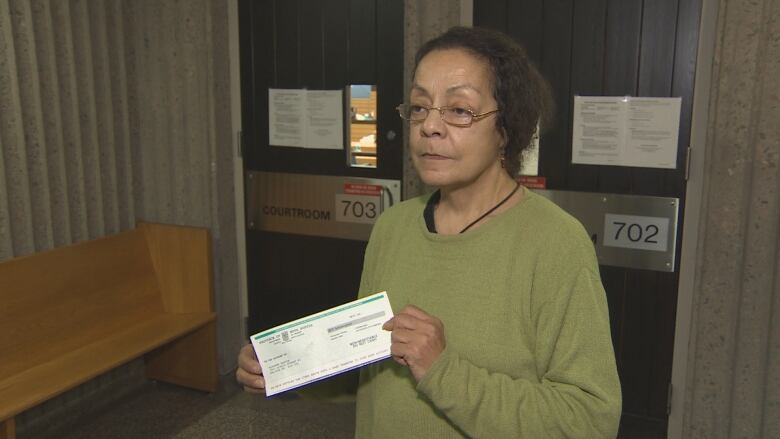Human rights commission ordered to reconsider special diet case
Justice James Chipman called commission's decision to dismiss the complaint unreasonable

A judge has ordered the Nova Scotia Human Rights Commission to reconsider a discrimination complaint five social assistance recipients filed over the province's failure to increase a special diet allowance since 1996.
The special diet allowanceis aimed at people who have chronic medical problems and require particular foods. During the same 20-yearperiod, the province has increased the basic food allowance for people on income assistance11 times.
Roxanne Barton, Deborah Wright, Bonnie Barrett, Pamela Chandler, Michele Cox and the North End Community Health Centre took the case to court in December.
In a decision released Wednesday, Nova Scotia Supreme Court Justice JamesChipmancalled the commission's decision to dismiss the complaint unreasonable.
"I'm very happy again that the [Nova Scotia] Supreme Court has not accepted that outrageous decision and our case has been returned to the commission for a second chance at providing us with a hearing," Barton saidWednesday.
"Anybody on a regular diet plan through social services is really, really struggling just to eat. But people with special-needs diets, it's even more difficult because those items are more expensive every year."
$96 special diet allowance
Barton, who lives in Halifax, receives $837 a month as income assistance. That includes a $96 special diet allowance for her chronic pancreatitis, pre-diabetes and a gastro-intestinal disorder. She also receives about $125 from the Canada Pension Plan.
Once she pays her rent, utilities and other expenses, she saidshe's left with about $100 a month for groceries.
In June 2016, the commission ruled the complaint against the Department of Community Services should not be referred to a board of inquiry because it did not believe an investigation would turn up any evidence of discrimination. The complaint was filed in August 2015.
MelanieMacNaughton, one of the commission's human rights officers, had recommendedthe complaint be referred to a board of inquiry to determine whether discrimination occurred based on disability.
10,000 Nova Scotiansget allowance
In his ruling, Chipmanset aside the dismissal and referred the case back to the commission to be dealt with in "accordance with the principles of fairness and transparency." He said there should not be a new investigation.
Human rights commissioners will decide whether thecase should be referred to a board of inquiry when they meetFeb. 22-23in Halifax.












_(720p).jpg)


 OFFICIAL HD MUSIC VIDEO.jpg)
.jpg)



























































































